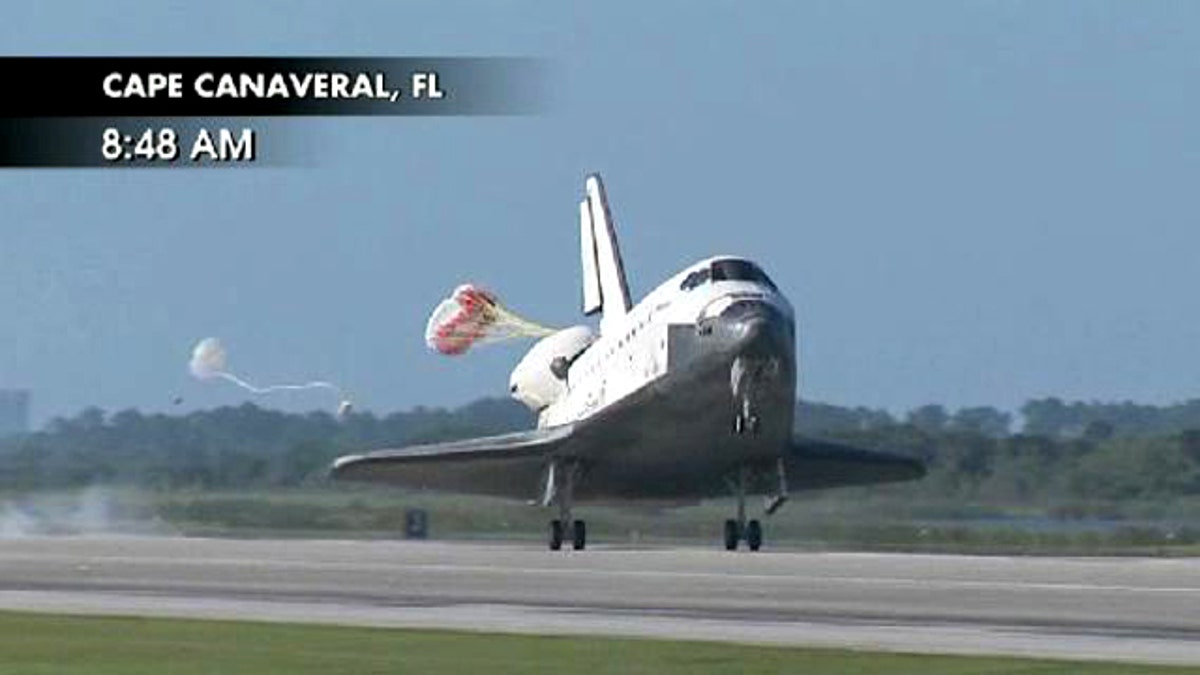
Atlantis touches down at Kennedy Space Center in Florida, concluding its final mission to the International Space Station.
CAPE CANAVERAL, Fla-- Space shuttle Atlantis, switching from spacecraft to aircraft, landed successfully in Florida this morning at 8:48 am, wrapping up what could be its final voyage into space as NASA's shuttle era draws closer to its end.
The landing marked the conclusion of a 12-day resupply mission to the International Space Station. It was the third-to-last mission for the U.S. shuttle program and is scheduled to be the last for Atlantis. NASA's other two shuttles, Discovery and Endeavour, will make their final flights in September and November.
The total mission time for Atlantis and its crew was 11 days, 18 hours, 28 days, 18 seconds.
On its path to Kennedy Space Center, Atlantis crossed the Florida Everglades and headed north, passing over Lake Okeechobee where it triggered dual sonic booms as it slowed to subsonic speeds. Commander Ken Ham aligned Atlantis with Kennedy's southeast to northwest runway 33, where the ship touched down.
Aboard Atlantis with Ham were five astronauts -- pilot Dominic "Tony" Antonelli and mission specialists Garrett Reisman, Piers Sellers, Stephen Bowen and Michael Good.
The shuttle crew awoke today at 12.20 a.m. EDT to sound of the song "Supermassive Black Hole" by the band Muse as a wake-up call from Mission Control. They closed the long doors on the shuttle's payload bay at 5:01 a.m. EDT, and made the first engine burn to move out of orbit at 7:41 a.m. EDT.
While at the International Space Station, the spaceflyers installed the new Russian room Rassvet (which means "Dawn" in Russian) and a collection of spare hardware, including a new space-to-ground antenna and a six-pack of solar wing batteries.
"The mission is going really well," Reisman told reporters Tuesday. 'We've accomplished all of our primary objectives." The six spaceflyers departed the orbiting laboratory on Sunday.
For Reisman, Good and Bowen -- the crew's three spacewalkers -- the highlight of the trip was the mission's three excursions outside of the station where they worked to install the new parts.
"The views were just amazing," Good said. "We're having a great time up here."
"The odometer currently reads about 120 million miles," Bowen said of the well-traveled orbiter.
While this is the last scheduled flight for Atlantis, there is a chance the shuttle could fly again. The orbiter is slated as the emergency rescue vehicle for the final planned shuttle flight, the STS-134 mission of Endeavour. If something goes awry during that trip, Atlantis could be launched to rescue the crew.
As soon as Atlantis hit the ground, crews began work to refurbish the vehicle to ready it for that potential rescue launch.
NASA and some lawmakers have been lobbying to turn that rescue mission into a full-fledged extra shuttle flight, one which could deliver more spares and supplies to the space station in June 2011. But the White House has not yet approved adding the extra shuttle flight to NASA's current mission roster.
Atlantis' current mission, STS-132, is NASA's 132nd orbiter flight and the third of five shuttle missions planned for this year.
Space.com contributed to this report.
